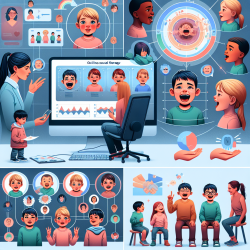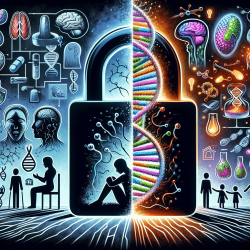Introduction
In the ever-evolving field of speech-language pathology, data-driven decisions are crucial for creating effective treatment plans and improving outcomes for children. The recent advancements in Natural Language Processing (NLP) offer exciting opportunities to enhance the efficiency and accuracy of data abstraction processes. A research article titled "DeepPhe-CR: Natural Language Processing Software Services for Cancer Registrar Case Abstraction" provides insights into how NLP can be integrated into clinical workflows to optimize data extraction and abstraction.
Understanding DeepPhe-CR
The DeepPhe-CR system is designed to automate the extraction of key details from clinical notes, particularly for cancer registrars. This system utilizes NLP techniques to identify and code relevant information, which can significantly reduce the time and resources required for manual data abstraction. The system has demonstrated high accuracy in extracting variables such as topography, histology, behavior, laterality, and grade across various cancer types.
Implications for Speech-Language Pathology
While the DeepPhe-CR system is primarily focused on cancer registries, its underlying principles and technologies can be adapted to benefit speech-language pathology. Here are some potential applications:
- Automated Data Extraction: Implementing NLP techniques can streamline the extraction of patient information from clinical notes, reducing the workload on practitioners and allowing them to focus more on direct patient care.
- Improved Accuracy: By automating the identification of key details, NLP tools can enhance the accuracy of data abstraction, leading to more reliable treatment plans and outcomes.
- Efficient Workflow Integration: The modular architecture of DeepPhe-CR can be adapted to integrate NLP tools into existing speech-language pathology workflows, minimizing disruptions and encouraging adoption.
Encouraging Further Research
The successful implementation of NLP in cancer registries highlights the potential for similar advancements in speech-language pathology. Practitioners are encouraged to explore how NLP can be integrated into their workflows to improve efficiency and outcomes. By staying informed about the latest research and technological developments, speech-language pathologists can continue to enhance their practice and provide better care for children.
Conclusion
The integration of NLP into clinical workflows offers significant benefits for data abstraction and patient care. The DeepPhe-CR system serves as a valuable example of how these technologies can be leveraged to improve efficiency and accuracy. Speech-language pathologists are encouraged to explore the potential of NLP in their practice to create better outcomes for children.
To read the original research paper, please follow this link: DeepPhe-CR: Natural Language Processing Software Services for Cancer Registrar Case Abstraction.










